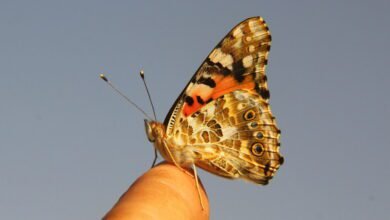Experts share options for feeding young minds with science

A well-deserved break from classes and exams doesn’t have to come with the summer slide — that time when summer learning loss can occur, according to the U.S. Department of Education.
There are plenty of ways to engage kids of any age during these lazy summer days, say experts at the University of Florida.
Here are some ideas to keep your young people engaged while feeding their minds.
Activate the young minds of citizen scientists anywhere
Mobile devices can bring scientists of any age to the fore. The next time you spot an unusual bird, plant, tree or reptile – whether on a family vacation or just taking a walk in the park – encourage kids to use their mobile devices to check them out on iNaturalist and Ask IFAS.
“You are making important contributions to the scientific data that researchers need to promote wildlife conservation and more,” said Corey Callaghan, an assistant professor at the UF/IFAS Fort Lauderdale Center for Research and Education who leads a research team. of global ecologists.
“It combines the best of all worlds when you can combine scientific discovery, an app, family time and some light reading that tells you all about the insects, plants, birds and reptiles they are observing and reporting with Ask IFAS as a resource,” he said.

In his latest Ask IFAS posts, “Magnificent Moths: A Guide to Getting Started “Plotting” and Contributing Your Observations to iNaturalist” and “Herping Adventures: A Guide to Exploring and Documenting Reptiles and Amphibians with iNaturalist,” Callaghan and his team provide insights into how you can be part of the conservation work.
They call on current and aspiring nature and science fans, people of all ages and education levels, and community scientists to observe and submit images of wild plants, animals, and fungi using the free iNaturalist mobile app.
“By documenting and identifying moths, we gain valuable information about biodiversity and ecosystem health. Individual moth observations help scientists track moth population trends, identify species at risk, and study the impacts of environmental changes on their populations,” he said.
Meanwhile, reptiles are often misunderstood and feared, likely due to their secretive nature and the perceived danger of poisonous snakes and frogs, added Brittany Mason, data management analyst for the research group.
“Learning to observe and document reptiles and amphibians, also known as herps, will open up a new appreciation for this diverse group of animals and contribute to our understanding of their biodiversity and spatial distribution. This knowledge is critical to developing effective management and conservation practices for this often overlooked group,” said Mason.
The opportunity is a valuable experience for children to increase their observation skills while helping local and not-so-local scientists.

Check out Florida 4-H in your county
There are plenty of activities to keep youth ages 5 to 18 busy at Florida 4-H. As the nation’s largest youth development organization, Florida Cooperative Extension — a part of UF/IFAS — reaches boys and girls through 4-H clubs, special interest groups and short-term projects.
New to 4-H options is CLOVER, provided by the National 4-H Council. Packed with interactive activities and content in collaboration with US universities, parents and guardians can choose from more than 190 activities that explore STEM, healthy living, citizenship, leadership and agriculture.
“Clover is an amazing free resource for parents and kids that can be accessed anywhere through the mobile app and website. This removes barriers to 4-H learning opportunities and hopefully sparks youth interest in science, healthy living and citizenship,” said Melinda Souers, UF/IFAS Extension Orange County 4-H agent who supports STEM, workforce preparation and school enrichment programs and more.
To access CLOVER, families create a free account that gives them access to this resource supported by partnerships with 100 top-tier universities.
Check your local UF/IFAS extension
With offices in all 67 Florida counties, UF/IFAS Extension is never far away. Visit the Leon County Extension Office at sfyl.ifas.ufl.edu/leon/ and check what is available on their websites. Each UF/IFAS Extension is packed with year-round activities and programs for everyone to enjoy.
Take St. Lucie County, for example. The UF/IFAS Extension office has partnered with the St. Lucie County Audubon Society and the St. Lucie County Library System for a unique waterfront project with the Downtown Fort Pierce Waterfront Birding Bioblitz.
This bioblitz will be held continuously throughout 2024. Visitors and downtown residents can take photos of the incredible diversity of birds in the Indian River Lagoon, breakwater islands and shoreline and submit their sightings to the bioblitz project. birding on iNaturalist.
Photos taken with phones and uploaded to this iNaturalist project will need to have location settings enabled for the photos to include geomatic metadata.
In Florida, 4-H is administered by the University of Florida/IFAS Extension and Florida A&M University.florida4h.org.




